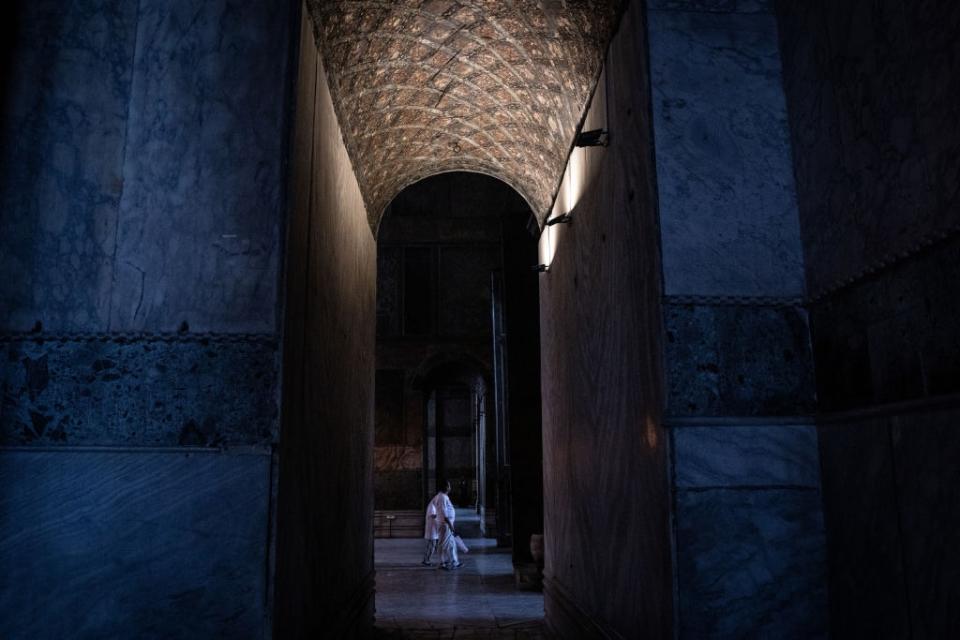Turning the iconic Hagia Sophia into a mosque is a tragedy for travellers

Changing the status of Istanbul’s iconic Hagia Sophia from museum to mosque may well be a vote winner for Turkey’s ruling AKP (Truth and Justice Party) but it is a tragedy for the millions of tourists who visit it each year.
The Unesco World Heritage Site, which as the Hagia Sophia or ‘Church of the Holy Wisdom’ was the spiritual heart of the Byzantine Empire for around 1,000 years, will host its first Muslim prayers on July 24 after President Recep Tayyip Erdogan confirmed the move last week.
He added that the building, previously converted into mosque following the Ottoman Turkish conquest of Istanbul in 1453, would remain open to all – but it seems certain the experience for tourists will be much diminished.
Visitor guidelines are likely to be the same as those at the nearby Blue Mosque, meaning the main part of the nave will be roped-off and accessible only to worshippers, denying visitors the opportunity to stand beneath the soaring 55m-high central dome, the best place to fully appreciate the sheer size and majesty of a building dating back to 537. Tourists will also have to time their visit carefully; as a mosque the Hagia Sophia will be closed to non-Muslims for 90 minutes at each prayer time.

The appearance of the interior will change too. Islam forbids representations of the human form in mosques, which is why the many beautiful figurative mosaic panels adorning the Hagia Sophia were either plastered or painted over by the Ottomans, only to be revealed again following its conversion to a museum by modern Turkey’s founder, Ataturk, in 1934. Today’s probable solution, screening them with drapes, or partitioning off sections where there are many mosaic panels, such as the galleries, from active prayer areas, will likely be, at best, a compromise that satisfies neither devout Muslims nor visitors.
That Turkey has the right to change the status of the Hagia Sophia is not in doubt, no matter how emotive and controversial the decision. But as someone who has been writing about, and showing people around, the Hagia Sophia for many years, I fear the proposed change may greatly reduce the allure of one of the world’s truly great buildings.


